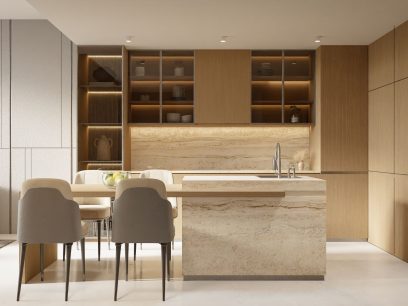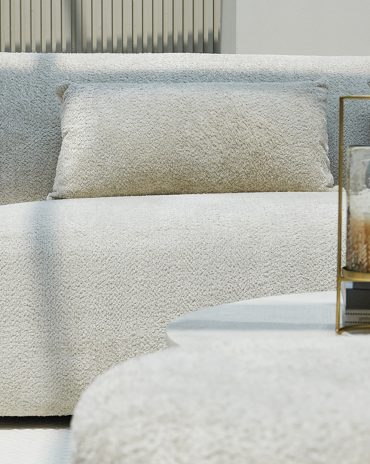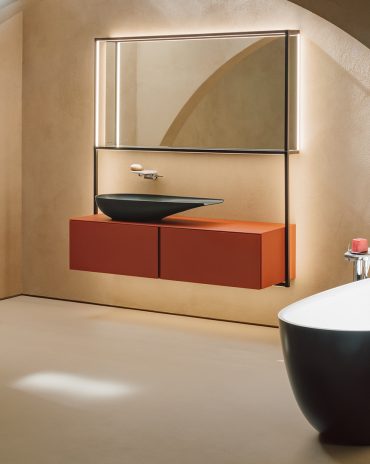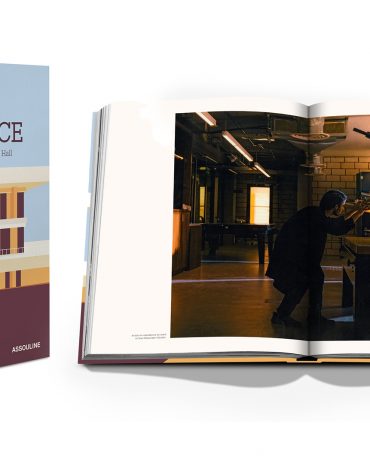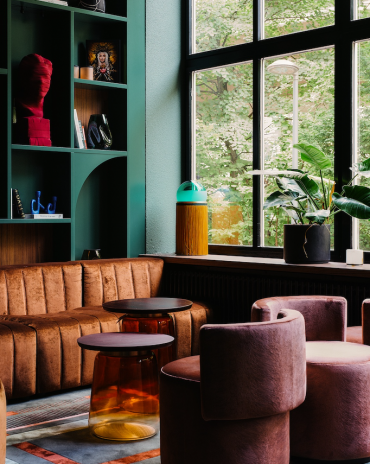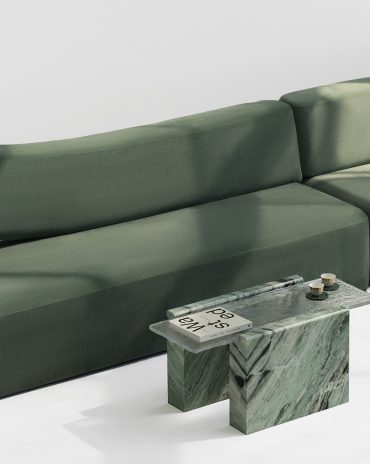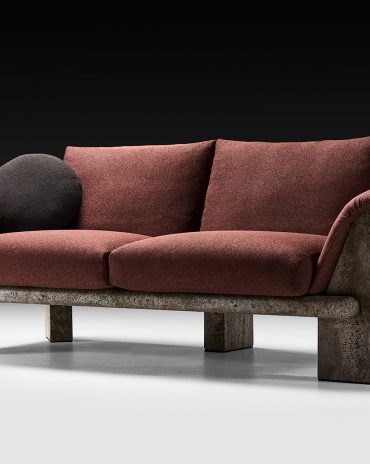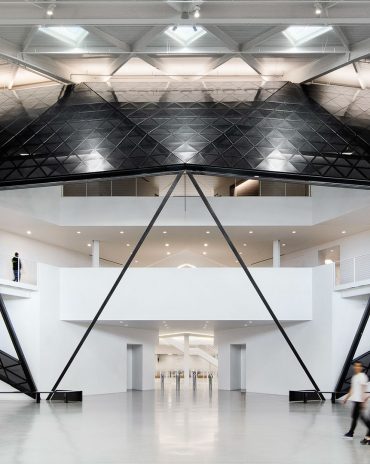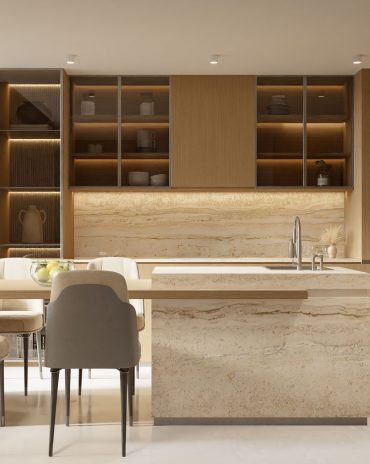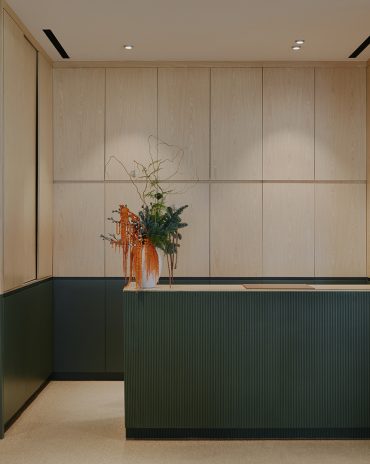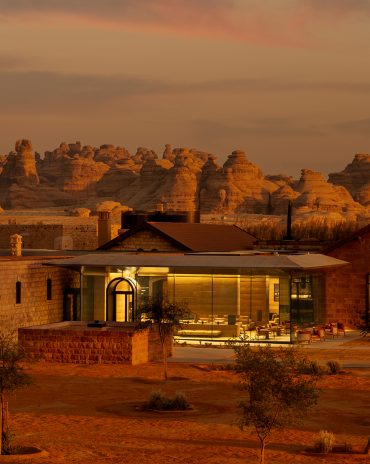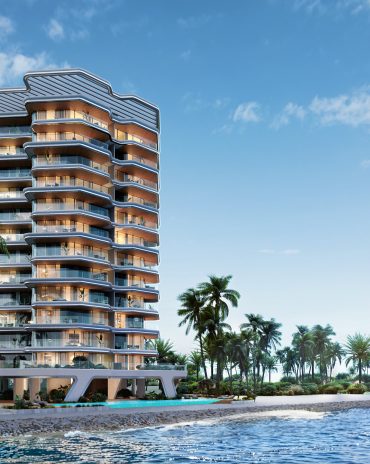Copyright © 2025 Motivate Media Group. All rights reserved.
Renovated Tuscan farmhouse fuses contemporary design with tradition
The Italian architects remained mindful of the building's historical context
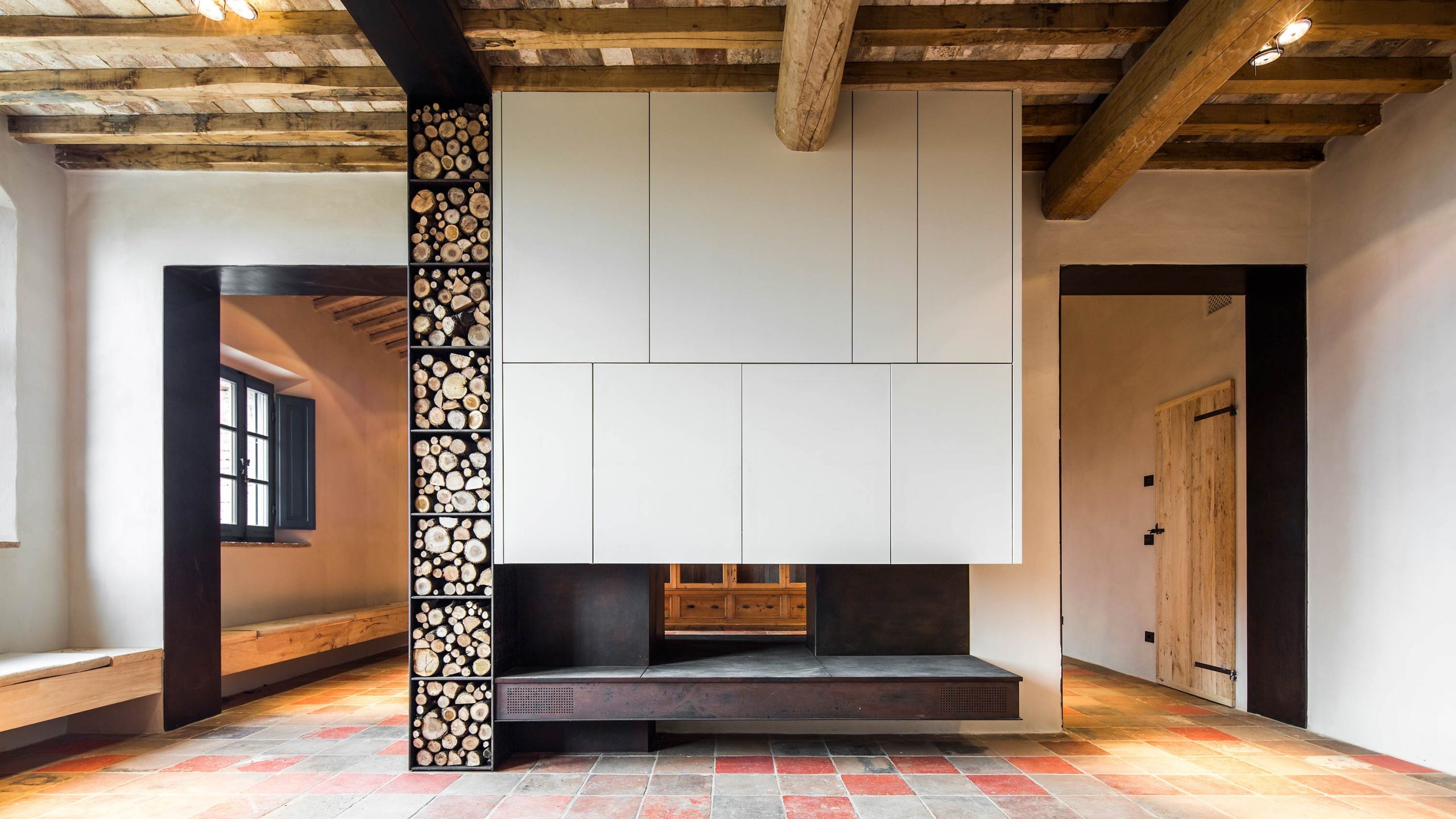
Italian architects Ciclostile Architettura have renovated an antique Tuscan farmhouse into a contemporary home while staying mindful of its historical and environmental context.
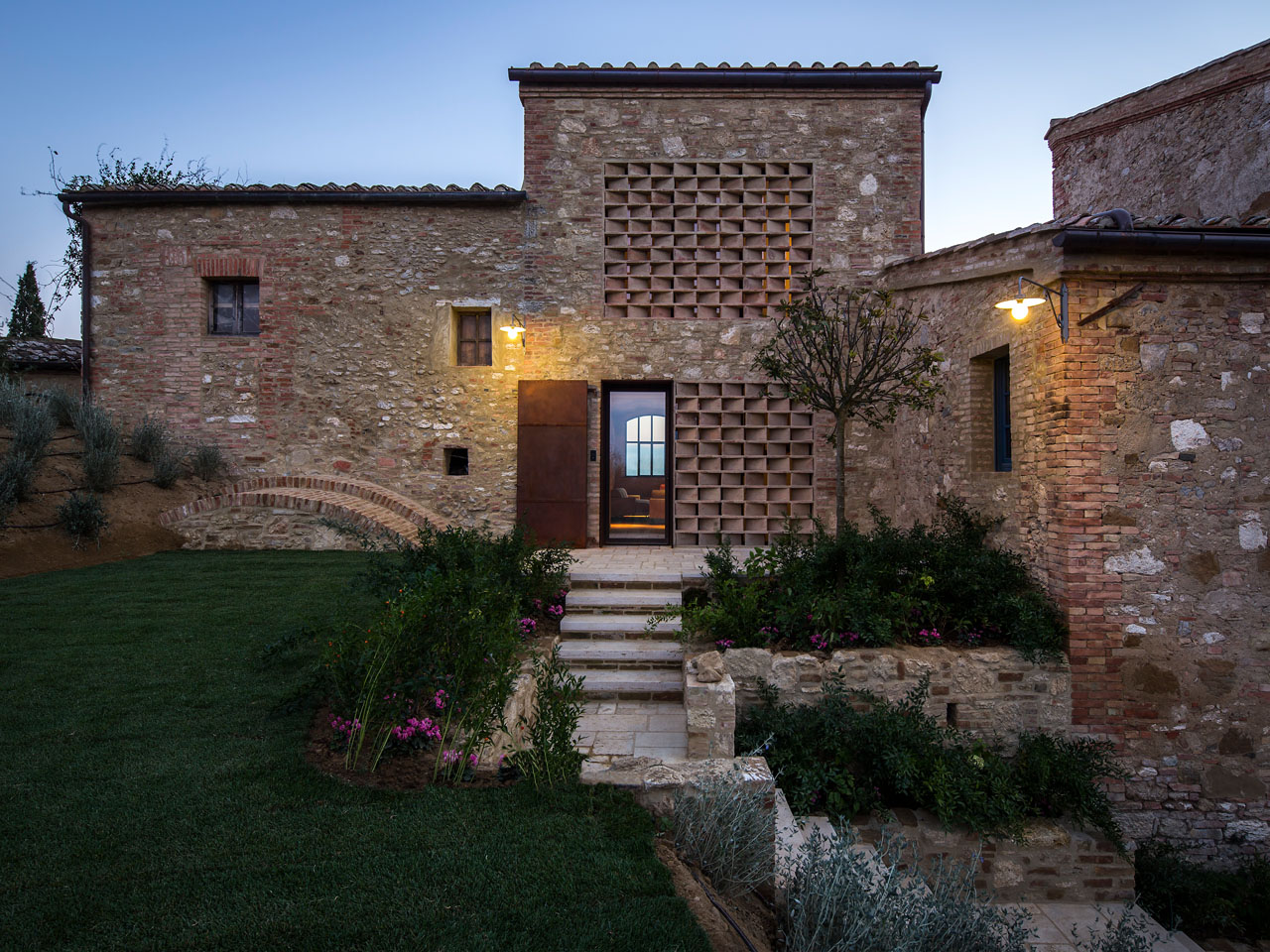
Set in the heart of the Sienese Clays in Italy, Podere Navigliano now showcases a reinterpretation of traditional elements which has allowed the architects to find a new language and a new aesthetic that is inseparably linked to its tradition.
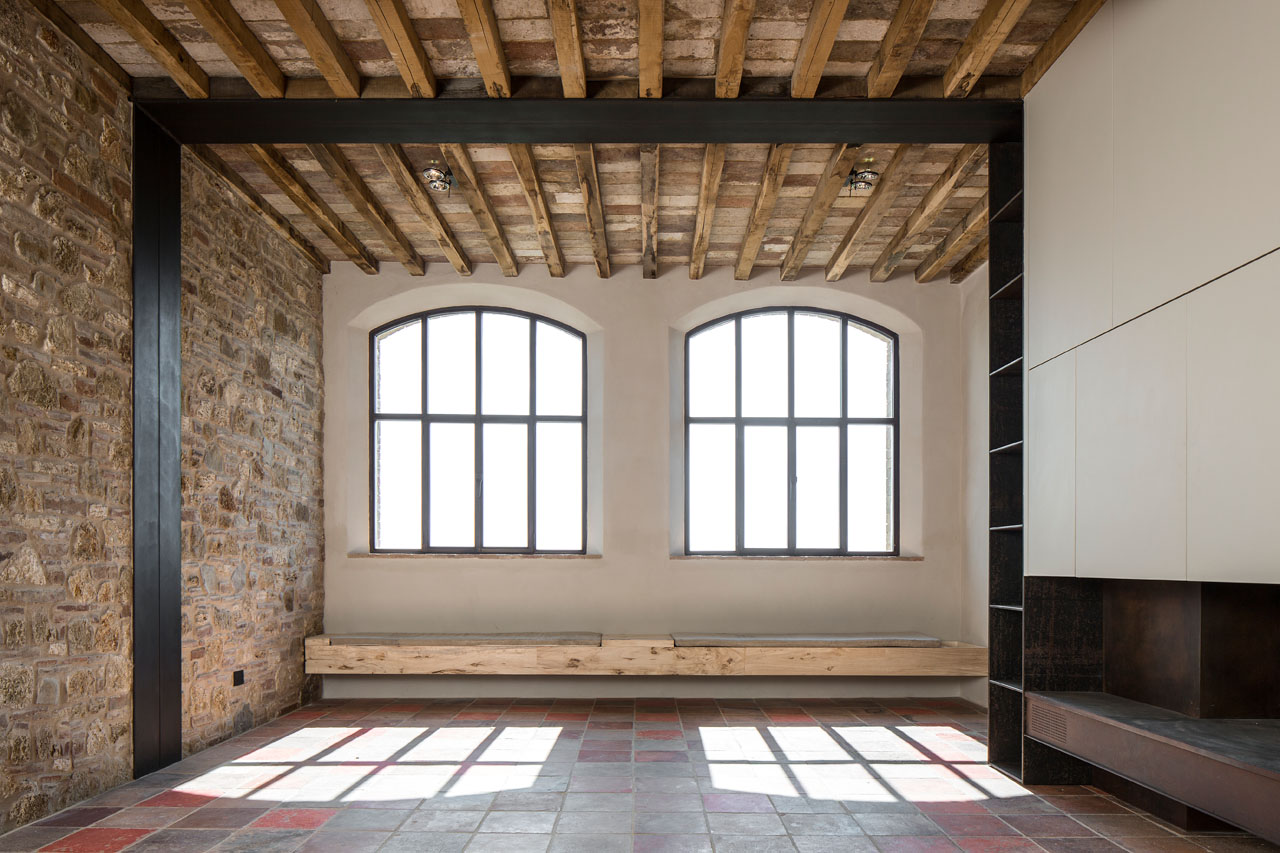
The renovation of a farm of spans 600 sqm spread over three levels: a ground floor that was used as a stable and service areas for agriculture, the first floor that housed two apartments and the second floor which consisted of two turrets that serviced of the apartments.
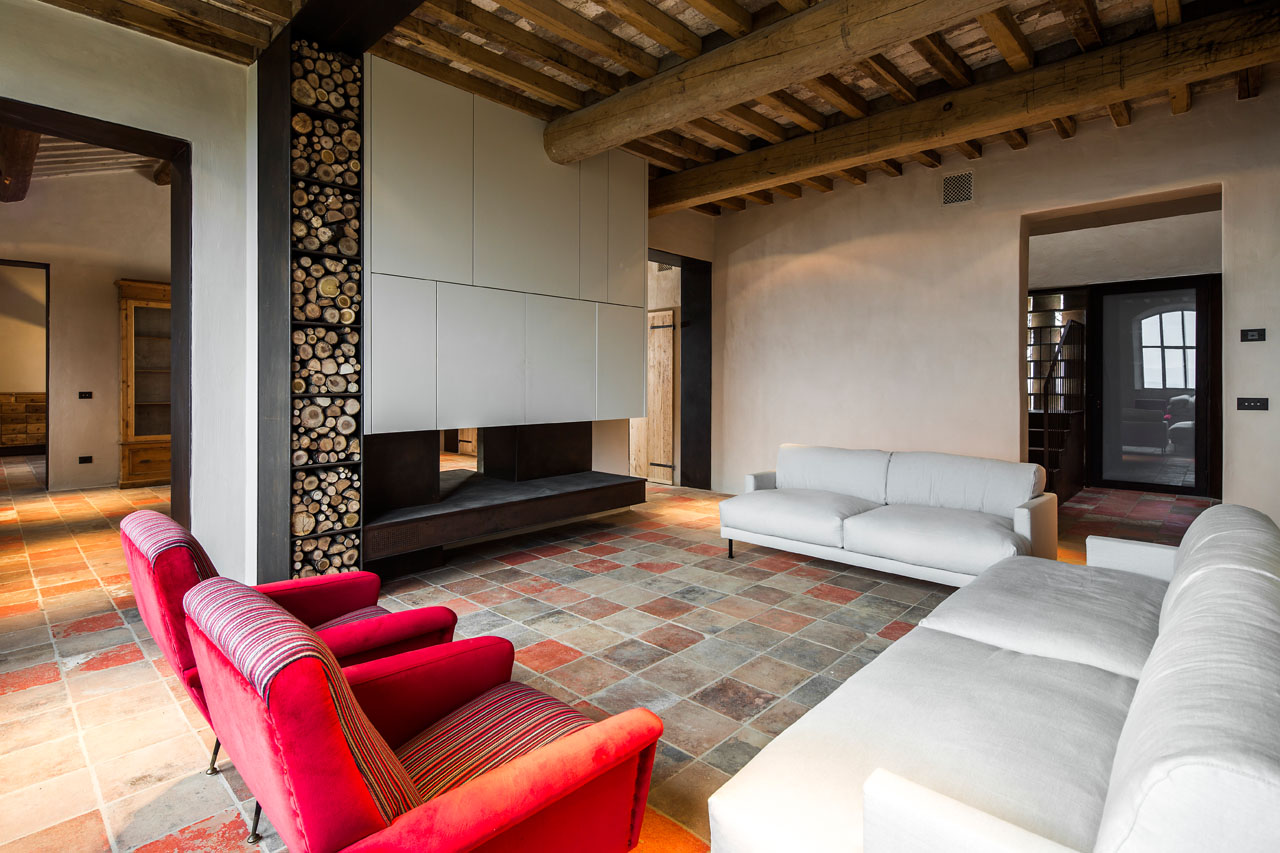
Through a new arrangement of the interior, the architects recreated it into a single dwelling while remaining respectful of its essential characteristics. For this reason, the ground floor has been localized as service spaces such as a tavern, laundry, and garage) while the first floor houses the living area that overlooks the valley to the south. The two bedrooms, in turn, overlook an intimate private garden.
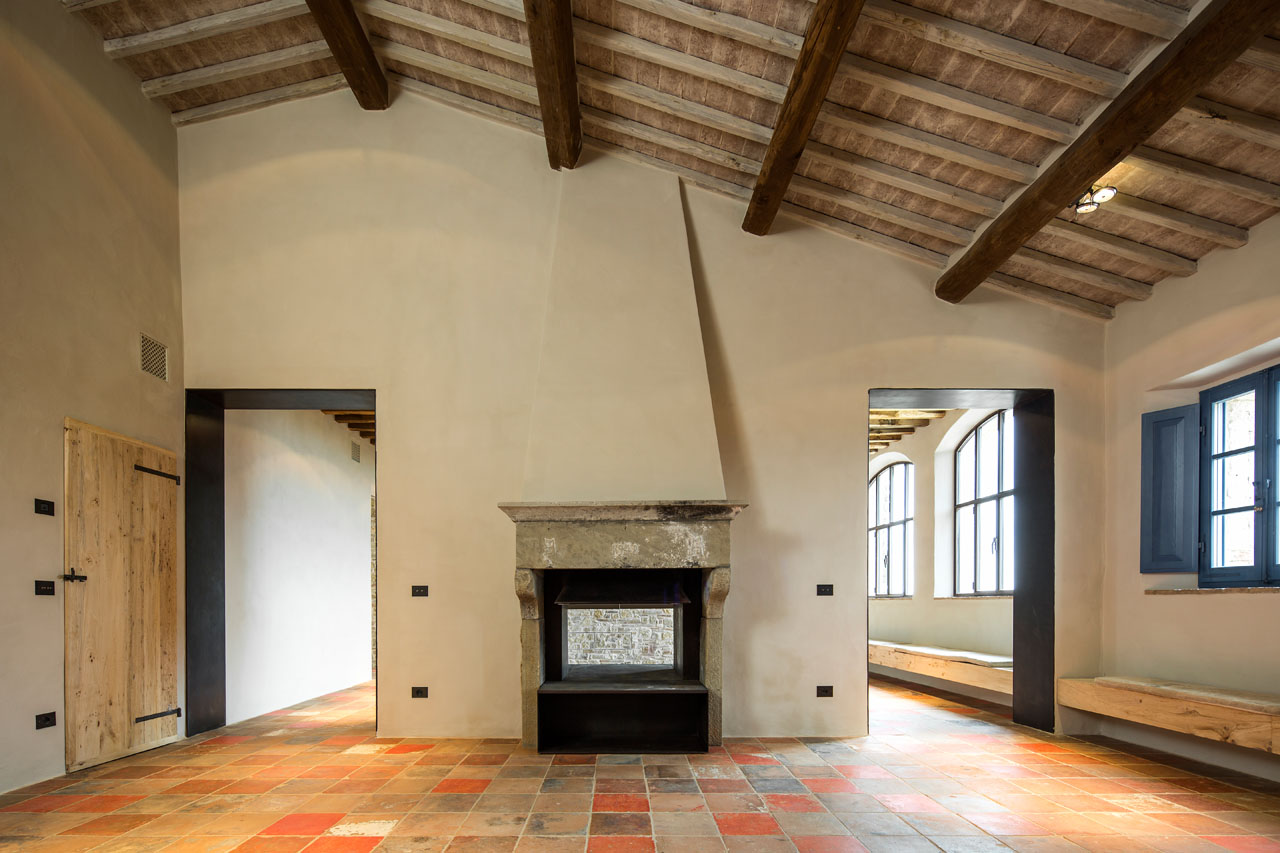
Particular attention was paid to the choice of materials, with the flooring playing a particular role in the intervention.
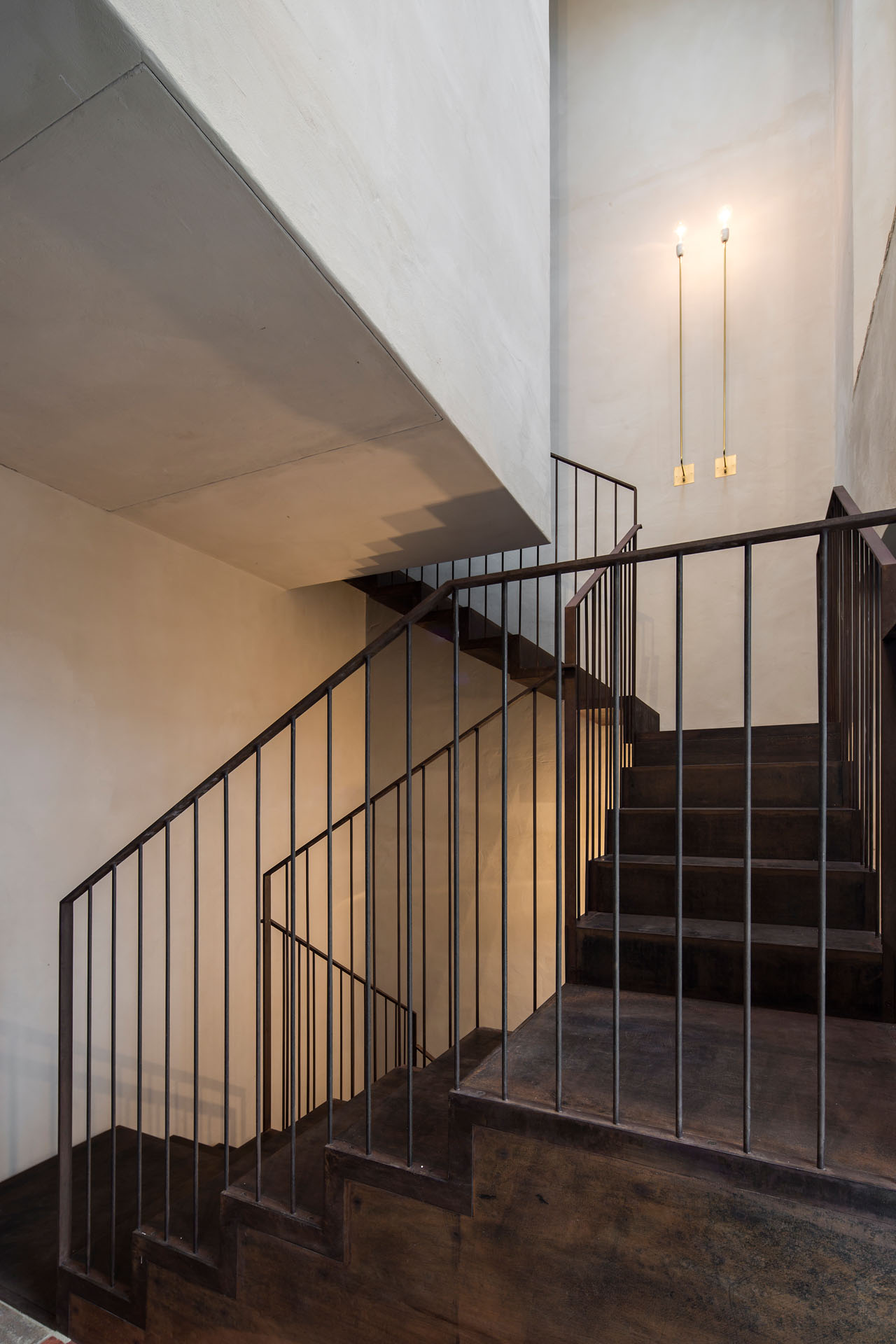
The ground floor is completed in resin instead of the previous clay pavement. Following the demolition of all interior floors for structural reasons, the architects decided to revive the existing brick floors in a new pattern in order to maintain its previous materiality while reviving it to suit a modern home.
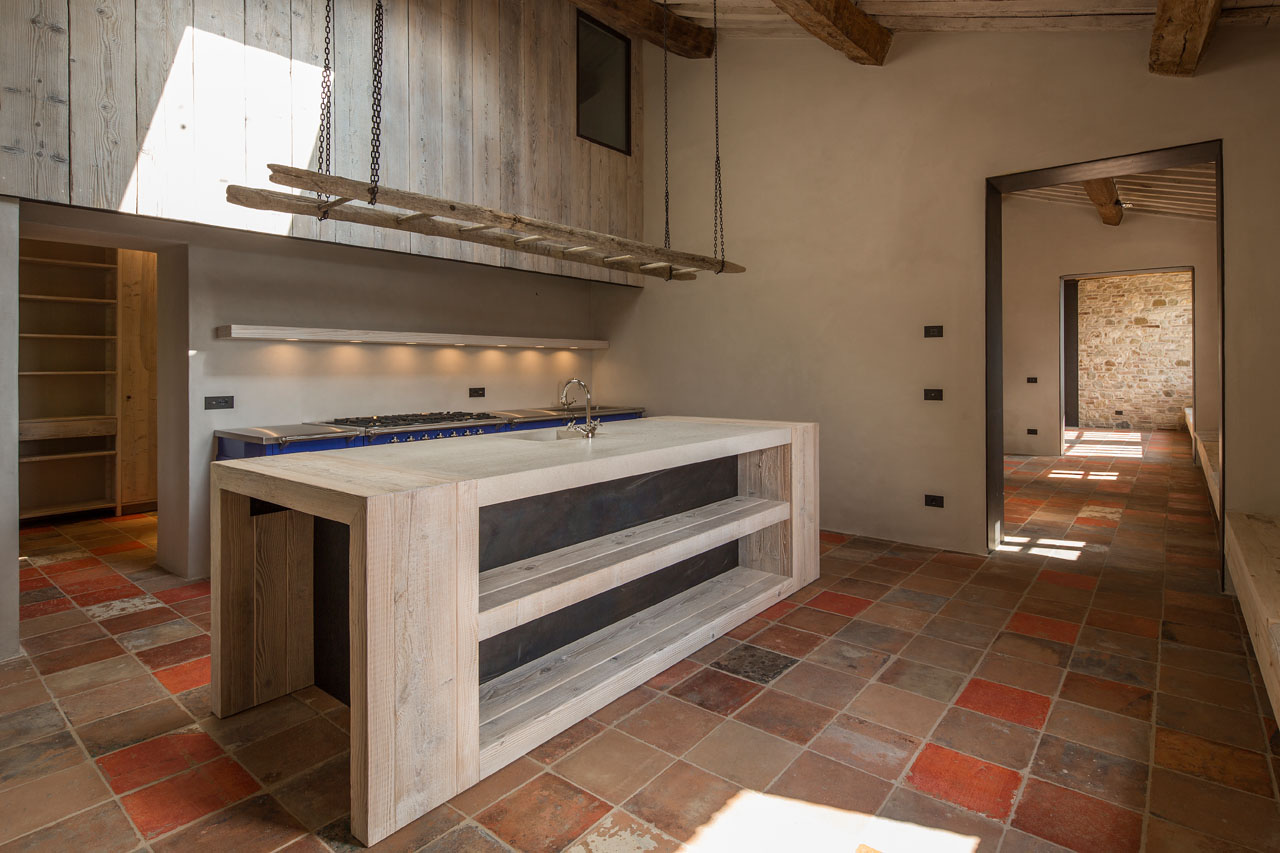
The first floor, in addition to the second floor, also features a reinterpretation of traditional woodworking in cross and diamond shapes that have been recreated with the same intention and sensitivity as the brick flooring.
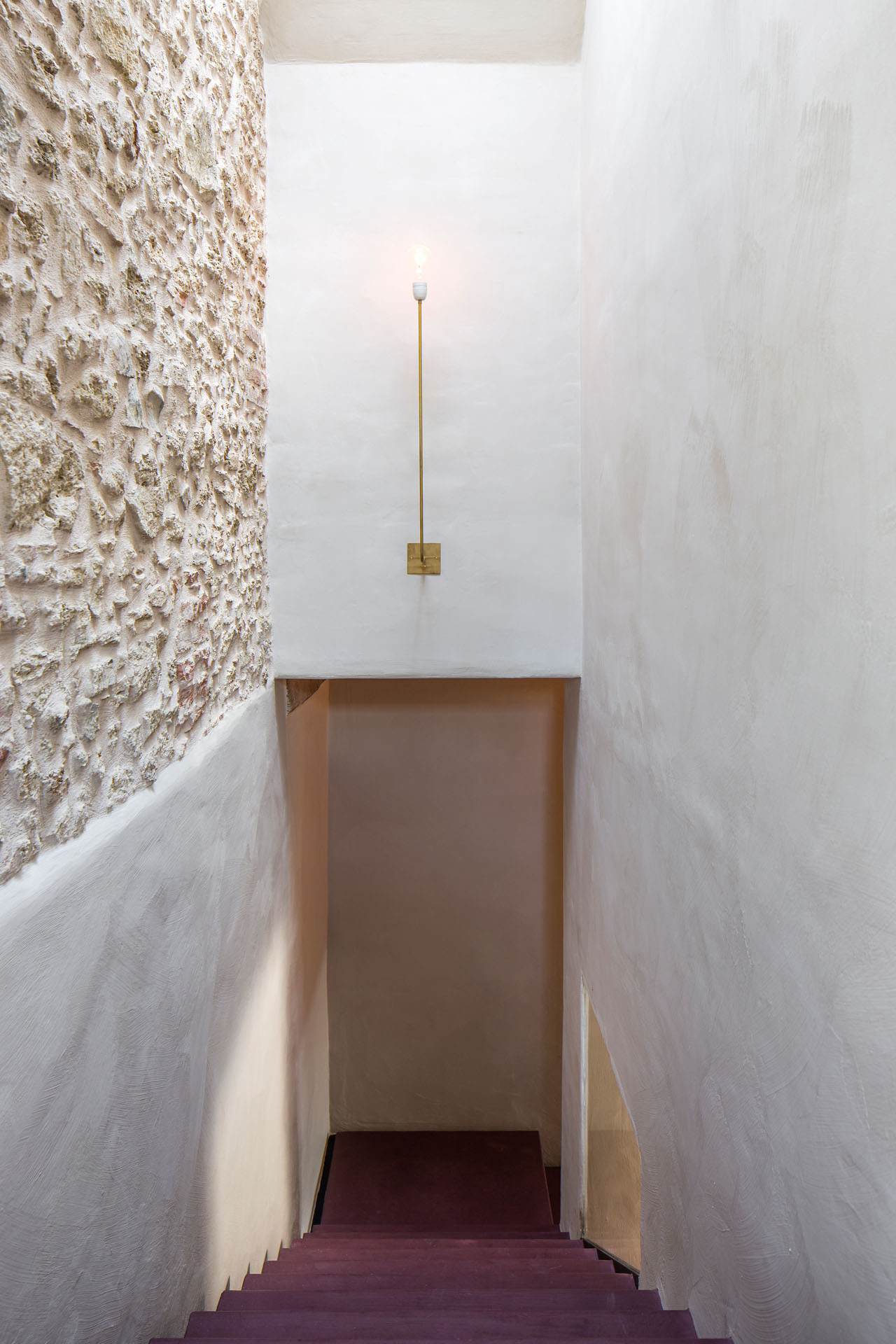
Steel is another material that plays a vital role within the new space and offsets the otherwise natural materials used across the interiors. This includes a corten steel staircase, a double-sided fireplace and steel hoops.
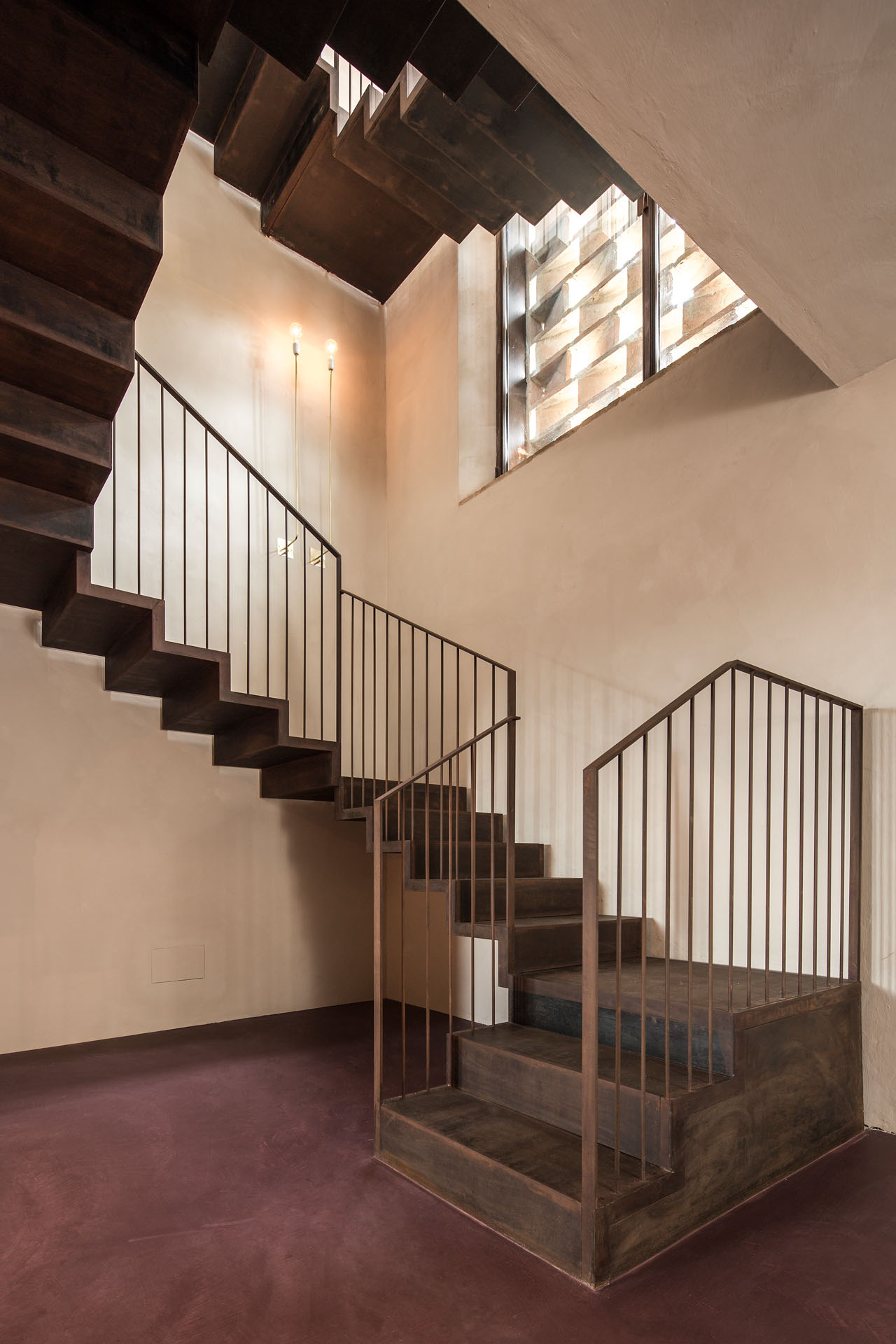
The architects explain that the aim was not to hide the existing scars of the building, but instead elevate them to characterize the space.
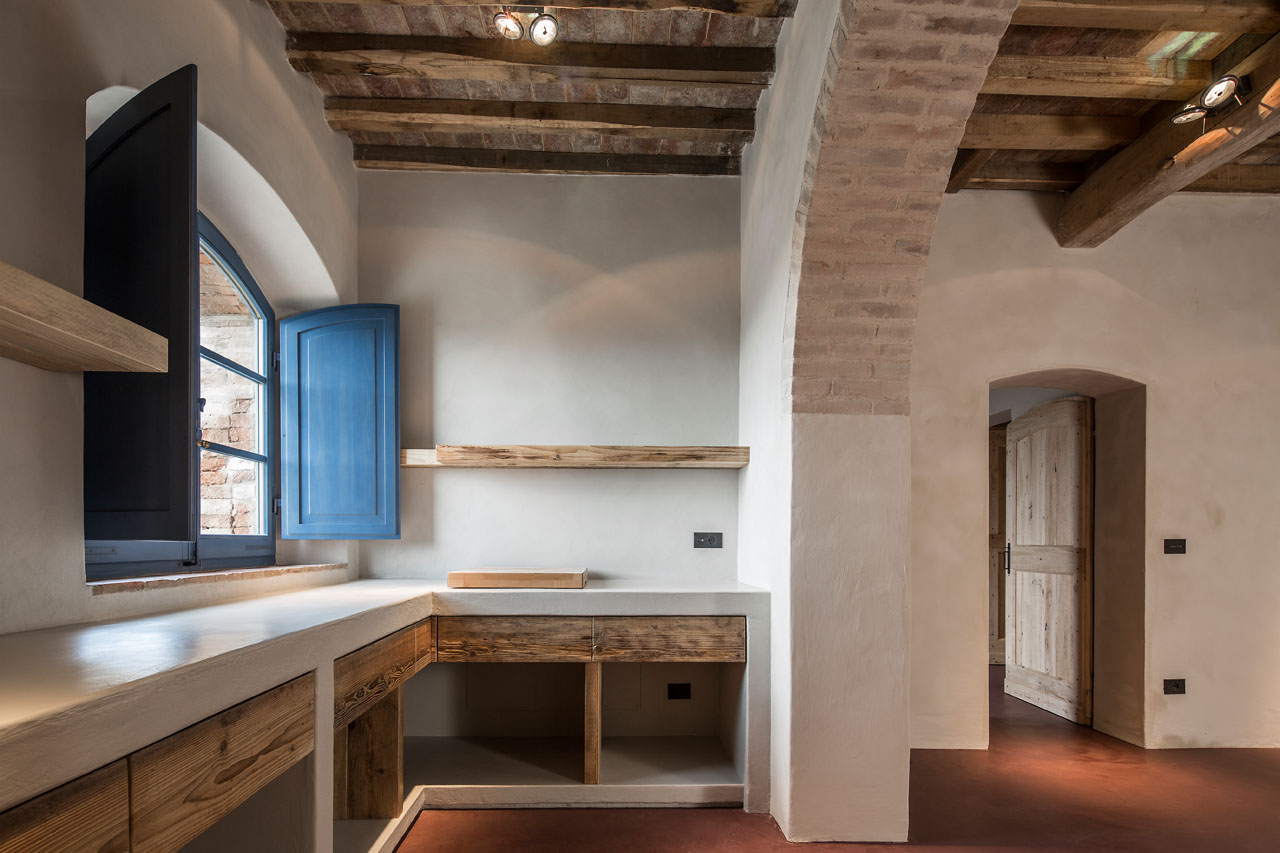
All the walls are finished with natural lime in an irregular manner to emphasize the beauty of the material, instead of using paint to cover it.
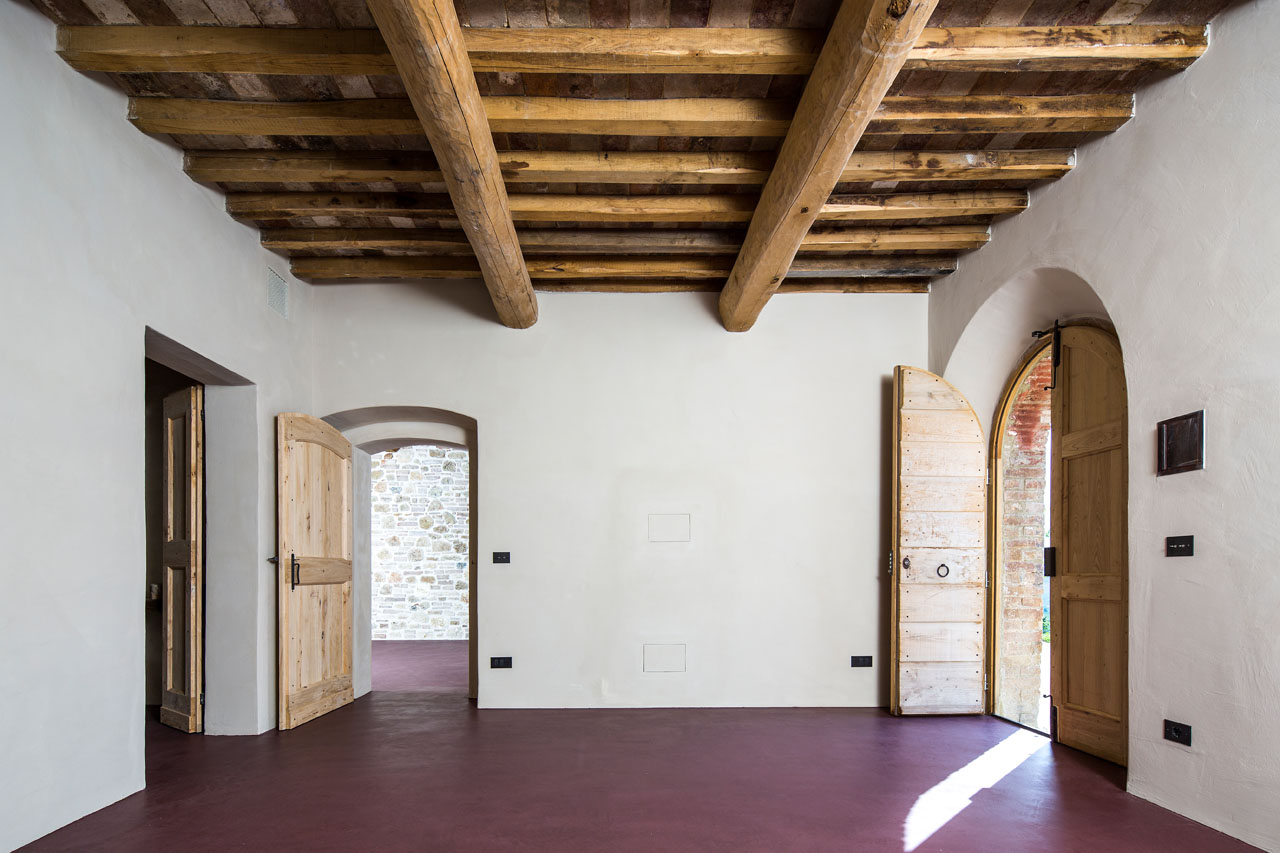
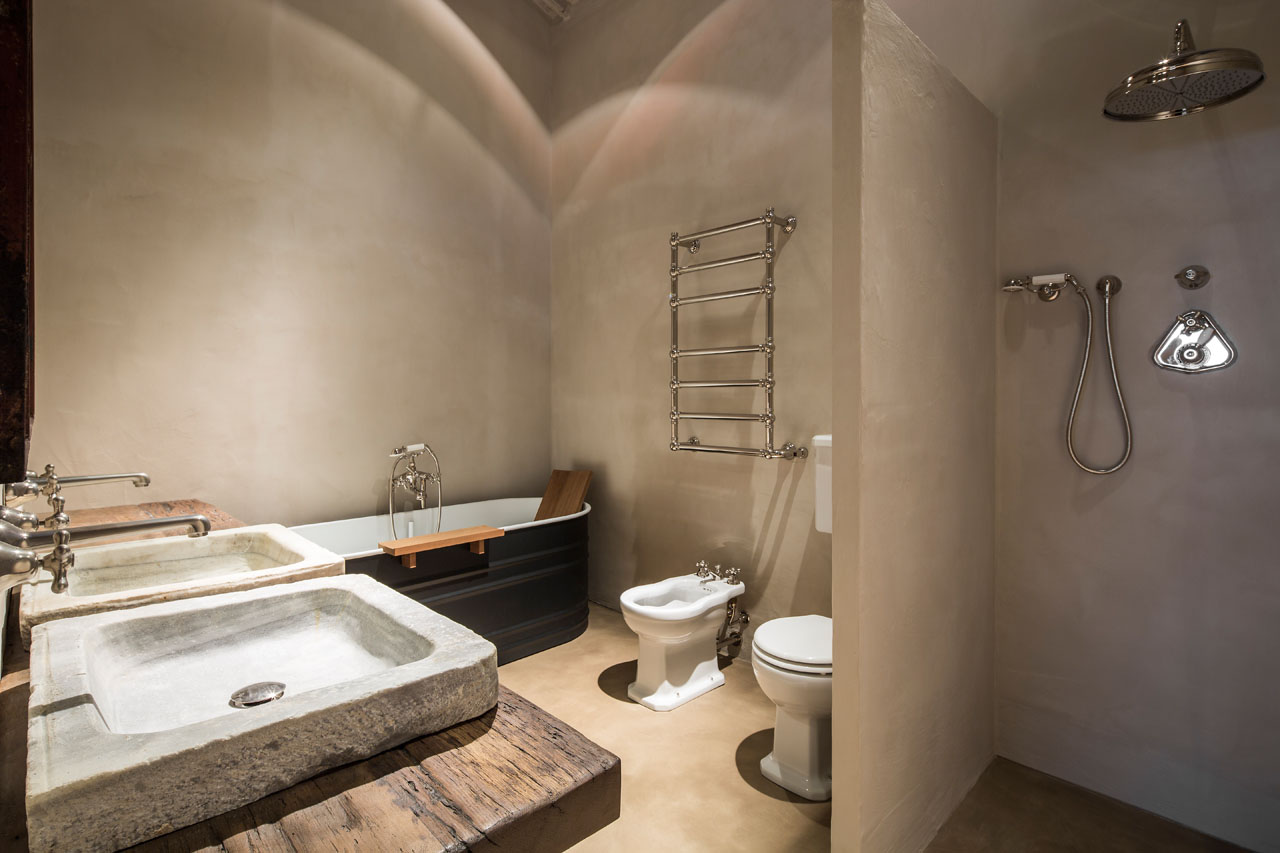
All external facades have been treated and restored with the same lime and reproduced in line with its original aesthetics except the facade of the main entrance, which was rebuilt for structural reasons.
The Latest
Textures That Transform
Aura Living’s AW24 collection showcases the elegance of contrast and harmony
Form Meets Function
Laufen prioritises design, functionality and sustainability in its latest collections
Preserving Culture, Inspiring Creativity
Discover the Legacy of a Saudi Art Space: Prince Faisal bin Fahd Arts Hall explores the Hall’s enduring influence on the cultural fabric of Saudi Arabia
Channelling the Dada Spirit
Free-spirited and creative, The Home Hotel in Zurich injects a sense of whimsy into a former paper factory
id Most Wanted- January 2025
Falaj Collection by Aljoud Lootah Design
Things to Covet in January
identity selects warm-toned furniture pieces and objets that align with Pantone’s colour of the year
Shaping the Future of Workspaces by MillerKnoll
Stacy Stewart, Regional Director Middle East & Africa of MillerKnoll discusses the future and evolution of design in workspaces with identity.
Shaping Urban Transformation
Gensler’s Design Forecast Report 2025 identifies the top global design trends that will impact the real estate and built environment this year
Unveiling Attainable Luxury
Kamdar Developments has launched 105 Residences, a new high-end development in Jumeirah Village Circle.
The Muse
Located in the heart of Jumeirah Garden City, formerly known as ‘New Satwa’, The Muse adds to the urban fabric of the area
Cultural Immersion Meets Refined Luxury
The Chedi Hegra opens its doors in AlUla’s UNESCO World Heritage Site
Redefining Coastal Luxury
Sunshine Bay on Al Marjan island combines seaside views, exceptional design, and world-class amenities to create a unique waterfront haven


